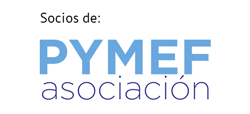FREQUENTLY ASKED QUESTIONS
General information about the Volcano Active Foundation
Click on the question to jump to the answer.
1. How often is the disaster risk assessment updated?
2. How often are these assessments included in local planning and development plans?
3. How is the safety of health, education and communication facilities assessed?
4. What are the plans for capacity building and education on disaster risk reduction?
5. How are our natural areas and ecosystems protected from natural threats?
6. What are our warning systems and emergency management capacity?
8. Why is the foundation based in Barcelona?
9.Why did you create a foundation?
1. How often is the disaster risk assessment updated?
This is a very interesting and worrying question because there are no rules and it depends on each volcano, government and the material and financial means of scientists.
2. How often are these assessments included in local planning and development plans?
Normally, it would be normal to create assessments with every change in urban planning but this is rarely the case.
3. How is the safety of health, education and communication facilities assessed?
It is often assessed by civil protection and government agencies. It is subject to the area’s own judgement and resources.
4. What are the plans for capacity building and education on disaster risk reduction?
They depend on the goodwill of governments and local entities. The UNDRR proposes general work actions on disaster risk management with a programme on the UNDRR page.
5. How are our natural areas and ecosystems protected from natural threats?
We talk about territorial resilience by taking into account the study of ecosystems in our environment. The more we are aware of the limits of our land, the more resilient we will be.
6. What are our warning systems and emergency management capacity?
Again, this depends on each area and each volcano and government. We are therefore subject to governmental awareness in its development of emergency plans.
7. What is our capacity for reconstruction, shock absorption, mental health management of the affected population?
If the area has had the opportunity to work with a risk mitigation and resilience plan, recovery times can vary from 3 to several months if the disaster is large. Without a plan, these times can be 10 times longer and losses multiplied by 50.
8. Why is the foundation based in Barcelona?
Barcelona is a cosmopolitan city open to the world. The connections with South America and the different countries where we work are very good. Barcelona is a city that encourages the development of ideas and projects.
9.Why did you create a foundation?
The lack of awareness of governments on disaster management, the absence of media coverage of volcanic issues, and the policy of reparations and denial instead of anticipation of risks, pushes us to wake up the science.
10. What is your income?
We wish to be and remain independent. Our concern is to have fair and correct analyses in volcanic lands and not under the pressure of lobbyists or governments. We have to make analyses for the good of the population and not for the money. We survive by your donations, our shop, our actions, our conferences and the hard work of all those who engage with us.



